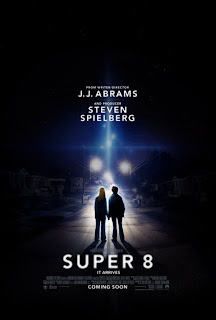
The pleasures of a good bad movie are rare enough that you can sometimes think you’ve outgrown them. For a while there I thought I was becoming too discriminating in my tastes, only able to appreciate finely crafted productions of the highest value, or failing that, low-budget films that were legitimately good. Burial Ground: The Nights of Terror , an uninspired Italian zombie romp whose only distinguishing marks are brutal violence and a random incest subplot, showed me the way. It’s in many ways as generic as a zombie film can get, but it’s got a vibe that I enjoy and is at times just bafflingly clumsy enough to work.
So, the story. An Alan-Moore-ish scientist (Renato Barbieri) researching Etruscan rites in a crypt accidentally wakes up a whole mess of rotting corpses and gets himself eaten, which will happen. Shortly after, a bunch of people arrive at a nearby mansion to spend a weekend or something. There are two young couples who plan to spend most of the time dry humping, and there’s a husband and wife who have an odd-looking son (Peter Bark, who was actually in his twenties) whose relationship with his mother is less than healthy. The zombies slowly navigate their way out of the crypt (and in some cases dig up straight through the ground) just in time to menace the party, chasing them into the mansion. The undead this time around are smart enough to use tools and set up traps, but for the most part you know what’s going down.
I will give European horror filmmakers one thing- their zombies tend to be stylin’. Here in the States we’ve had our fill of facepainted groaners dressed in work-a-day outfits, and while they make a nice metaphor for social decay or the vanishing middle class or something like that, sometimes you want out-and-out monsters, and that’s what Burial Ground: The Nights of Terror delivers. These guys have obviously been in the ground a while, and the makeup is reasonably impressive; they have a look that suggests truly misshapen ghouls, with often-hollow eye sockets, deformed remnants of teeth, and the occasional maggot. While the bright-as-day cinematography is uninspired, the surreal music emphasizes the zombies as something unearthly.
You do have to give a film like this credit for a very quick start, with the zombie rampage beginning in earnest about fifteen minutes in. Of course this gives us next to no time to learn about or connect with any of the characters, meaning they spend most of the film as an undifferentiated mass of victims milling around various locations for no good reason. (The upside of this is it does make it harder to tell who has script immunity, since nobody is particularly more developed than anyone else.)
Even with the plot as rudimentary as it is, there are a few questionable turns. The characters work out early on that you can actually kill the zombies by destroying their heads, and at one point inside the mansion manage to fend off quite a few with swords, clubs, and other weapons. Which they promptly discard and never use again. The mother and son manage to set a few of the creatures on fire using paint cans and matches, so naturally this is never tried again. The people come up with one of the worst escape plans in recent memory only to have it work, only to run along to two other random locations that don’t seem much more defensible. And it’s never really explained just what the Hell caused the dead to start getting up, and a scene late in the movie confuses things no end.
But I had fun. The movie rushes along through nonsensical but nicely weird setpieces, generates something that’s not quite fear or tension but maybe passes as unease, and when it runs out of interesting things to do, just stops. Perhaps going in with no expectations helped, or maybe it just evoked nostalgia from my teenage years renting any lurid crap the horror section at the video store had to offer. It doesn’t feel as cold, crass, or cynical as some other entries in the Euro-zombie subsubgenre, and in its plodding way has a kind of charm. Some people will like it.
Written by Piero Regnoli
Directed by Andrea Bianchi
Grade: C






